Record high amount of microplastic found on seafloors
Inhabitat - Innovation
MAY 6, 2020
Everybody knows that microplastics pose a huge threat to our oceans. A new study shows that this plastic problem has reached a record high.
This site uses cookies to improve your experience. By viewing our content, you are accepting the use of cookies. To help us insure we adhere to various privacy regulations, please select your country/region of residence. If you do not select a country we will assume you are from the United States. View our privacy policy and terms of use.
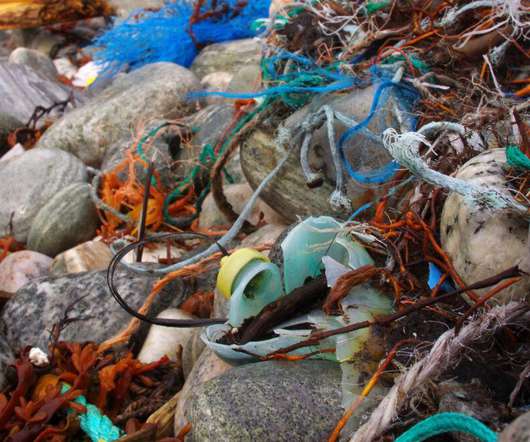
Inhabitat - Innovation
MAY 6, 2020
Everybody knows that microplastics pose a huge threat to our oceans. A new study shows that this plastic problem has reached a record high.

Envirotec Magazine
SEPTEMBER 7, 2022
Independently verified research by Swedish water technology firm Bluewater has apparently verified the efficiency of its water purifier technology at removing up to 99.99% of health threatening microplastics and chemicals such as toxic PFAS from tap water.
This site is protected by reCAPTCHA and the Google Privacy Policy and Terms of Service apply.

Inhabitat - Innovation
OCTOBER 21, 2020
million microplastics daily. Babies around the world are consuming over 1.5

Inhabitat - Innovation
SEPTEMBER 30, 2019
The next time you are craving tea, choose the paper teabag or loose-leaf tea in a reusable infuser — just steer clear of the plastic teabag.

Inhabitat - Innovation
AUGUST 20, 2020
But a new study of plastic in the Atlantic Ocean reveals the pollution problem is ten times worse than scientists suspected. We knew it was bad.
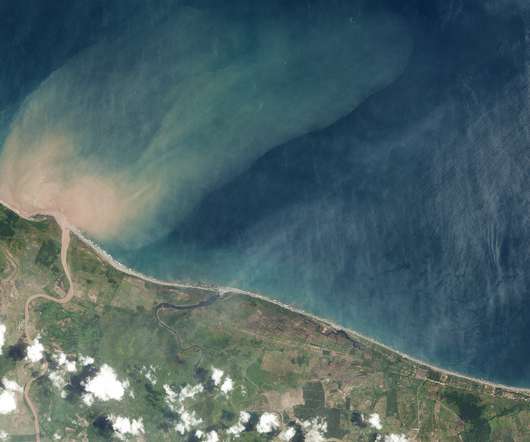
Planet Pulse
OCTOBER 27, 2020
New research combining Planet’s high cadence satellite imagery and other innovative technologies has successfully found the sources and pathways of plastic pollution in the Caribbean Sea. A boom is filled with plastic, and yet was only able to collect small amounts of it due to much of the debris passing it by. km2 to 0.77km2.
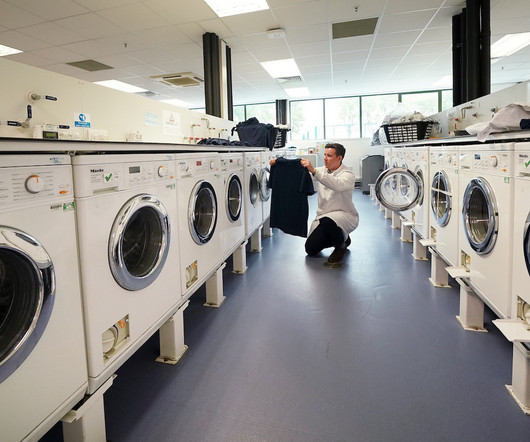
Grist
APRIL 19, 2023
It was only a decade or so ago that scientists first suspected our clothing, increasingly made of synthetic materials like polyester and nylon, might be major contributors to the global plastic problem. By one estimate , they account for as much as one-third of all microplastics released to the ocean. This year U.S.
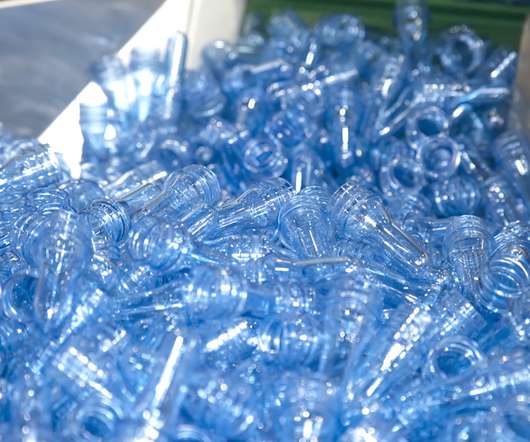
Envirotec Magazine
DECEMBER 1, 2021
360 million metric tonnes of new plastic was produced in 2018. A group from the University of Pittsburgh explains, and offers a view on why the world must transform plastic use from linear to circular. In 1950, 2 million metric tonnes of new plastic was produced globally. Where did it all go?

DeSmogBlog
MARCH 6, 2024
Last week at the New York State Capitol, more than 300 advocates joined lawmakers for a rally to urge the passage of a landmark waste reduction bill that proponents say is the best piece of legislation in the country aimed at lessening plastic trash. Thankfully they have not succeeded so far.”

The City Fix
JUNE 8, 2023
“Plastic kills, and the damages of plastic pollution have no borders. We cannot beat plastic pollution if we don’t tackle climate change, environmental loss and food crises at the same time.” That was the powerful message Paris Mayor Anne Hidalgo.

Envirotec Magazine
DECEMBER 15, 2021
The Baltic Sea had the highest levels of microplastics in Europe, double the amount in the Mediterranean?. • New research from the round-the-world yacht race The Ocean Race* has found microplastics, and in particular microfibres, to be prevalent across the length and breadth of the continent.
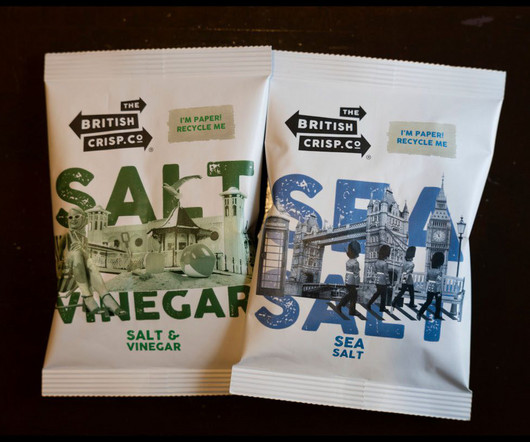
Envirotec Magazine
APRIL 10, 2024
It uses an innovative polymer, Hydropol, instead of conventional plastic. It does not break down into harmful microplastics, so it still has a safe end-of-life even if it is not disposed of as intended. The new paper packet was developed in partnership with Evopak, a manufacturer of sustainable paper based flexible packaging.

AGreenLiving
APRIL 29, 2021
Scientists at Hong Kong Polytechnic University have found a way to use bacteria’s natural stickiness to pull microplastics from the environment. Their vision is that microplastics in polluted water will adhere to tape-like bacteria nets, making a plastic blob that can easily be recycled or otherwise disposed of. “It

Green Tech Challenge
MAY 23, 2019
For years we’ve listened to environmentalists and conservationists talk about the need to reduce plastic waste. Not only do new plastic waste deposits still make it into the ecosystem, but because plastic is not biodegradable, it will take decades to rehabilitate the ocean. More specifically, microplastic.
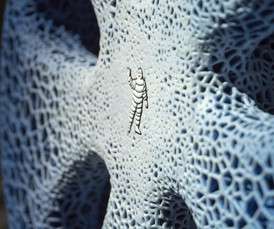
Business Green
FEBRUARY 24, 2021
More than 200 ingredients are used to make Michelin's tyres, with natural rubber making up the main component, alongside synthetic rubber, metal, fibres, and tyre strengthening materials such as carbon black, silica and plasticizers. Moreover, the sector faces a well-documented recycling challenge for end of life tyres.

Envirotec Magazine
AUGUST 22, 2019
It acknowledged that plastic particles from tyres are also deposited into sewers and lead to harmful consequences to marine wildlife and aquatic food chains. Particles from brake and tyre wear include copper and zinc, microplastics and a group of chemicals called polyaromatic hydrocarbons (PAHs).

Martin LaMonica
DECEMBER 28, 2018
Among the ones this year was a series on plastic, the material that’s been boon to modern life but a very damaging one as well. Our complicated relationship with plastic: 5 essential reads. Plastics are hard to avoid in daily life. From its arrival decades ago , plastic has transformed modern life. Rivers and lakes.
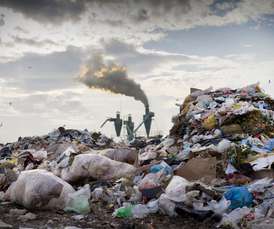
Business Green
APRIL 5, 2022
Year-long research project led by Systemiq asserts window for action is fast closing, but concludes shift towards net zero plastics system is affordable and achievable. Yoni Shiran, program director and partner at Systemiq, said a new, more climate and planet-friendly plastics system was "within reach but will require bold action".

AGreenLiving
MAY 31, 2021
Recently unveiled by SeaCleaners, the Manta hybrid catamaran is designed to combat the oceans’ plastic pollution in a brand new way. Its design allows the Manta to extract microplastics from 10 mm upward and up to 1 meter deep. More: The Manta is a hybrid catamaran that will collect floating plastic.

Greentown Labs
MARCH 26, 2024
Twenty-four startups joined our community in Q1 2024, working on innovations ranging from biobased building materials, to sustainable rubber, to solar-powered flight. Puro Renewables upcycles carbon-negative biowaste to reduce the amount of fossil-fuel-based resin and carbon footprint associated with typical plastic products.

GreenBiz
FEBRUARY 22, 2021
Now, a wave of technology innovation and funding from an eclectic group of companies ranging from Google’s parent Alphabet, to the Seed2Growth fund linked to Lukas Walton (grandson of Walmart founder Sam Walton), to Cargill and Chevron Ventures (both focused on fish-feed ventures) is changing the tide again. Among the emerging U.S.

The Environmental Blog
APRIL 17, 2024
Our oceans, teeming with life, are under siege by a silent threat – plastic pollution. Millions of tons of plastic waste enter the marine environment every year, wreaking havoc on marine ecosystems and the creatures that call them home. Impact of Plastic Pollution on Marine Life Plastic debris takes a brutal toll on marine animals.

AGreenLiving
JUNE 9, 2020
While 3D printed steak and lab-produced chicken are on their way to the market, one innovative company has set their sights on providing a well-rounded menu of seafood options that don’t come from the sea. BlueNalu is developing innovative cell-based seafood. However, the U.S. ” + BlueNalu Images via BlueNalu. .”
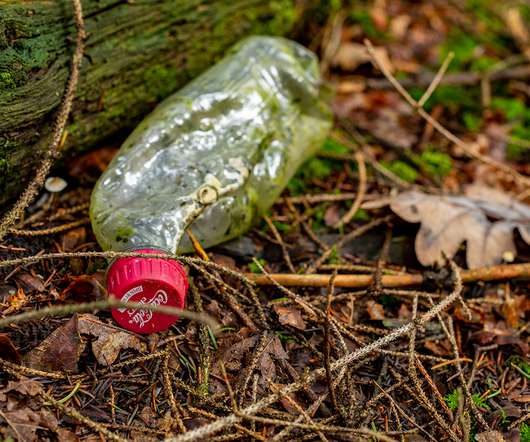
Envirotec Magazine
FEBRUARY 22, 2022
The world is producing twice as much plastic waste as two decades ago, with the bulk of it ending up in landfill, incinerated or leaking into the environment, and only 9% successfully recycled, according to a new OECD report. Almost half of all plastic waste is generated in OECD countries, according to the Outlook.

AGreenLiving
JUNE 7, 2021
But environmentally, these plastic pods are mounting up to an estimated 40 billion pieces of waste in the landfills every year. Nexe Innovations, a Vancouver-based company, set out to eliminate plastic , explaining, “Our mission is to replace everyday products with plant-based materials.” Read the original here:Â .

Grist
MARCH 13, 2024
The spotlight If you’ve read any climate-related news in the past several years, you’re probably familiar with the scourge of microplastics. These tiny bits of plastic end up clogging oceans. The bits of plastic shed from synthetic textiles have their own term: microfibers.
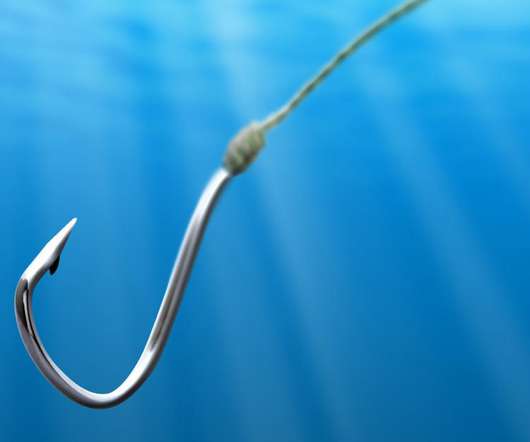
GreenBiz
JUNE 8, 2021
If the sourcing is done carefully, fake fish also should be devoid of the mercury and microplastics that can stem from ocean plastic pollution. In general, there is a lot of dynamism and innovation in this sector, and that is a good thing," said Torsten Pohl, head of the Nestlé Product Technology Center in Singen, Germany, via email.
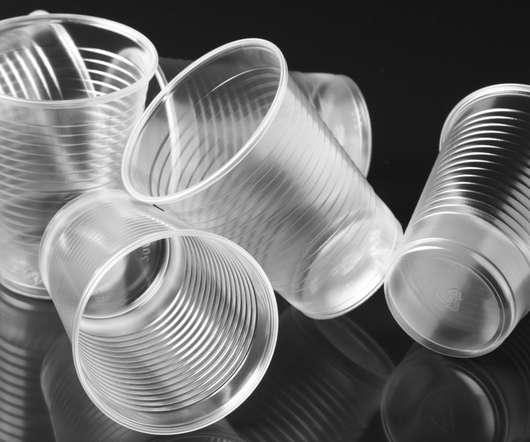
GreenBiz
AUGUST 26, 2020
Where there's hope for speeding up business action on plastics. Its landmark report, "The New Plastics Economy," sounded the alarm in 2016 that if "business as usual" continues, by 2025 the ocean may hold more plastic than fish by weight. Only five years ago, few corporate leaders had plastic pollution on their official radar.
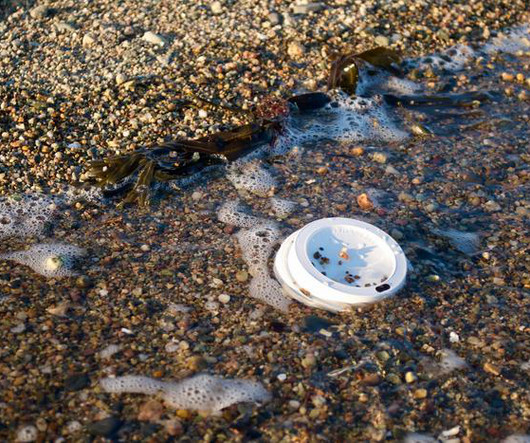
Envirotec Magazine
JANUARY 9, 2024
The research has developed a sustainability metric for the ecological design of plastic products, like cup-lids, recognizing and quantifying their propensity to break-down more quickly in the environment (image credit: Bryan James/Woods Hole Oceanographic Institution).

AGreenLiving
NOVEMBER 22, 2021
It is a company with a focus on green design products and a dedication to using proceeds from sales to rid the Earth’s waterways of plastic and other pollution. Related: Adidas 100% recycled jacket is solving plastic pollution PANGEA’s Eco-Jacket is made from 100% recycled materials. of trash from rivers, and 68 lbs.

Green Business Bureau
FEBRUARY 25, 2021
Innovation. Procuring sustainably means evaluating your current products and practices in an innovative way. Avoid plastic products whenever possible as many plastics are non-recyclable and can break down into microplastics that threaten wildlife and human health.

Business Green
APRIL 11, 2021
With funding from the plastic bag charge Waitrose launched a £1m grant fund for innovative plastic-waste busting ideas - Hubbub's Trewin Restorick sets out the key achievements. It is estimated that lost fishing gear makes up as much as 46per cent of marine plastic pollution. Tackling hidden plastics.

Business Green
JANUARY 6, 2022
Innovate UK's Jonny Voon explores some of the most exciting green ideas this year, ranging from UK lithium mining and plastic recycling breakthroughs, clothing that 'grows' with the children wearing it. Key to a sustainable recovery is innovation. Currently, only up to 15 per cent of plastic is recycled. Impact Recycling.

Business Green
JANUARY 13, 2021
A new study from Canadian non-profit Ocean Wise has shown that synthetic fibres, many released from clothing and textiles during domestic laundry, make up a large proportion of microplastics in the Arctic Ocean. This new research confirms that over 70 per cent of Arctic ocean plastic microfibre pollution is coming from our clothes.
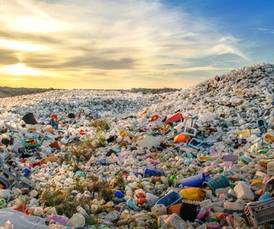
Business Green
AUGUST 28, 2020
With the launch of the US branch of the Plastics Pact the case for corporates to step up their plastic waste reduction efforts are becoming clearer than ever. Its landmark report, "The New Plastics Economy," sounded the alarm in 2016 that if "business as usual" continues, by 2025 the ocean may hold more plastic than fish by weight.

R-Squared Energy
OCTOBER 11, 2021
Just about anywhere you travel in the world, you will encounter plastic pollution. Even the beaches of remote tropical islands are littered with plastic waste. A recent study published in the journal Nature characterized 414 million pieces of plastic — 238 metric tons — on one remote island chain in the Indian Ocean. .

Business Green
JULY 8, 2021
New tyre is designed to reduce air pollution in London as part of Mayor-backed Innovation Challenge. Delivery giant DPD has this week teamed up with tyre developer ENSO Tyres to trial the use of new green tyres that aim to reduce air and microplastic pollution from electric vehicles (EVs).
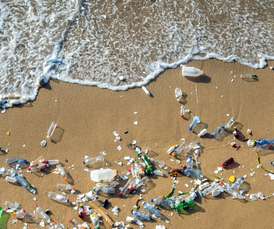
Business Green
JUNE 28, 2022
Whether from deforestation, intensive farming and pesticide use, polluted rivers and lakes, or the microplastic epidemic swamping the planet's oceans, the planet's ecosystems are facing intensifying threats that further risk undermining the global economy.

Green Business Bureau
MARCH 16, 2021
Use less plastic, in all forms. Petroleum-based plastic packaging is derived from our finite supply of fossil fuels and much of it does not break down completely for hundreds to thousands of years. Consider packaging multiple foods together in the same container or choose packaging designs that require less material. About the Author.

Business Green
OCTOBER 29, 2020
The fully biodegradable and compostable packaging innovation has been developed in Edinburgh with support from Innovate UK and Sky Ocean Ventures. Moreover, the carbon footprint of the bottle is 44 per cent smaller than a regular plastic one, it claims.

Green Business Bureau
MARCH 16, 2021
Use less plastic, in all forms. Petroleum-based plastic packaging is derived from our finite supply of fossil fuels and much of it does not break down completely for hundreds to thousands of years. Consider packaging multiple foods together in the same container or choose packaging designs that require less material. About the Author.

Green Business Bureau
JANUARY 18, 2023
As human society has continued to innovate exponentially, largely at the expense of the planet, scientists have hypothesized that we are beginning to enter a new epoch, or period of time in history, defined by human impact on the earth known as the Anthropocene.

AGreenLiving
FEBRUARY 22, 2021
Now, a wave of technology innovation and funding from an eclectic group of companies ranging from Google’s parent Alphabet, to the Seed2Growth fund linked to Lukas Walton (grandson of Walmart founder Sam Walton), to Cargill and Chevron Ventures (both focused on fish-feed ventures) is changing the tide again. Among the emerging U.S.
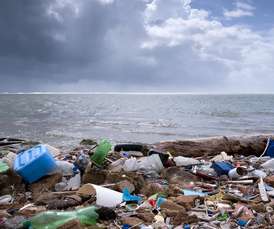
Business Green
FEBRUARY 22, 2022
Campaigners are stepping up calls for a global treaty to tackle plastic pollution, as evidence grows that voluntary measures are struggling to turn the tide of plastic waste. At the same time, plastic waste has more than doubled, rising from 156 million tonnes to 353 million tonnes over of the same period.
Expert insights. Personalized for you.
We have resent the email to
Are you sure you want to cancel your subscriptions?


Let's personalize your content